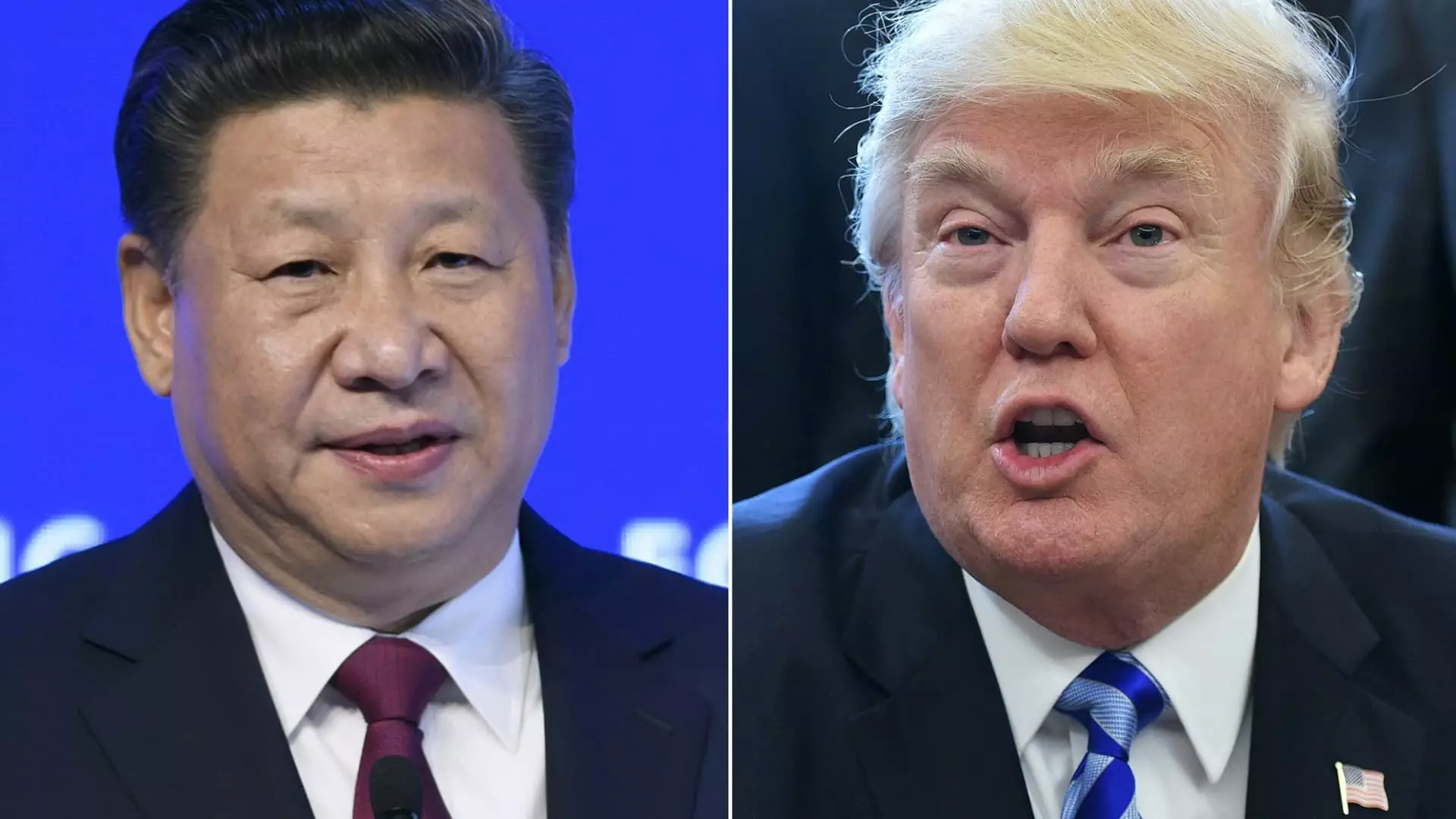In an unexpected twist that underscores the instability defining U.S.-China relations, President Donald Trump recently amplified his rhetoric regarding the alleged breach of a preliminary trade agreement by China. This self-deprecating moniker of being “Mr. NICE GUY” is likely ironic, as Trump shifts from diplomacy to aggression with a mere tweet. The expectation that a nation with a complex socio-economic landscape would adhere to an agreement he crafted seems naive, illuminating the folly of negotiation strategies that mix bravado with dismissal of reality.
Trade agreements are constructed on the foundations of mutual benefit and compliance, yet they often transform into arenas of grievance. Trump’s outburst reveals not just frustration but signals a fundamental misunderstanding of the intricacies that govern international trade. In his mind, the hardline tactics he endorsed were meant to bring China to heel. However, when faced with what he perceives as non-compliance, the President’s reaction paints a portrait fraught with disappointment, where the ideals of diplomacy are swiftly overshadowed by an impulsive reactionary stance.
The Stock Market’s Reaction: Fear and Uncertainty
Predictably, the U.S. stock futures plummeted following Trump’s incendiary remarks, as financial markets are intricately tied to global trade dynamics. Investors are not merely concerned citizens; they are attentive audiences to the whims of political leadership. The nervousness that spreads across the trading floor when Trump’s words permeate public consciousness exposes a deeper malaise plaguing modern capitalism—a fragility tied to the unpredictability of single-issue leadership.
U.S. Trade Representative Jamieson Greer, after echoing Trump’s sentiments, admitted to alarm over China’s purported slow compliance. Such unequivocal statements from decision-makers reflect not just policy discontent but also the doom-laden reality that negotiations with China are a delicate dance, fraught with the potential for stalemate and regression. The term “completely unacceptable,” while certainly aggressive, underscores an impotence that persists when the underlying challenges of global trade are grossly oversimplified.
A Cycle of Negotiation and Retaliation
The genesis of these agreements, stemming from severe tariff impositions and retaliatory measures, conjures a cycle reminiscent of a game of chicken. Given that the tension escalated previously to a point where a temporary truce was necessary, one must wonder if these momentary agreements merely stanch immediate bleeding rather than lead to sustainable frameworks. The ambitions for long-term cooperation appear systematically undermined by the emotionally charged narrative Trump’s administration has adopted.
Moreover, the unilateral imposition of tariffs stands as a testament to a misguided strategy that seeks leverage through coercion rather than partnership. It betrays a lingering skepticism that both sides are willing or able to consider the broader implications of their economic warfare. The United States may stand tall in terms of economic prowess, but the hubris of acting as the sole arbiter of international relations undermines potential collaborative solutions.
Trump’s Disconnect with Reality
Moreover, Trump’s musings on China’s socio-economic plight border on surrealism. The claim that he initiated a “FAST DEAL” out of genuine concern for China’s economy speaks to a deeper disconnect from the real geopolitical landscape. It glosses over the broader structural issues—issues entrenched in China’s rise as a global power—for the sake of self-aggrandizement and history rewriting. To portray the situation sequentially, from trading vulnerability to swift rescue, suggests either a dangerously simplistic belief in his own narratives or a blatant disregard for the ensuing complexities.
The normalization of this transactional perspective can lead to a vengeful national conversation, where trade partners are vilified rather than viewed as equals with shared interests. The casual dismissal of “civil unrest” and factory closures in China reflects an alarming trend towards self-serving diplomacy rather than constructive dialogue. Perhaps what is needed isn’t just a reset of trade terms but an earnest recalibration of how we engage with nations on economic grounds—a focus on building bridges rather than fortifying walls.
Ultimately, as the winds of trade shift erratically under the auspices of Trump’s administration, what emerges is not just a fragile agreement teetering on the brink but a national ethos in peril. In the realm of global trade, political theatre should not over-replace the essence of responsible governance, lest we find ourselves perpetually caught in cycles of strife, grappling for footing on this unpredictable global stage.

